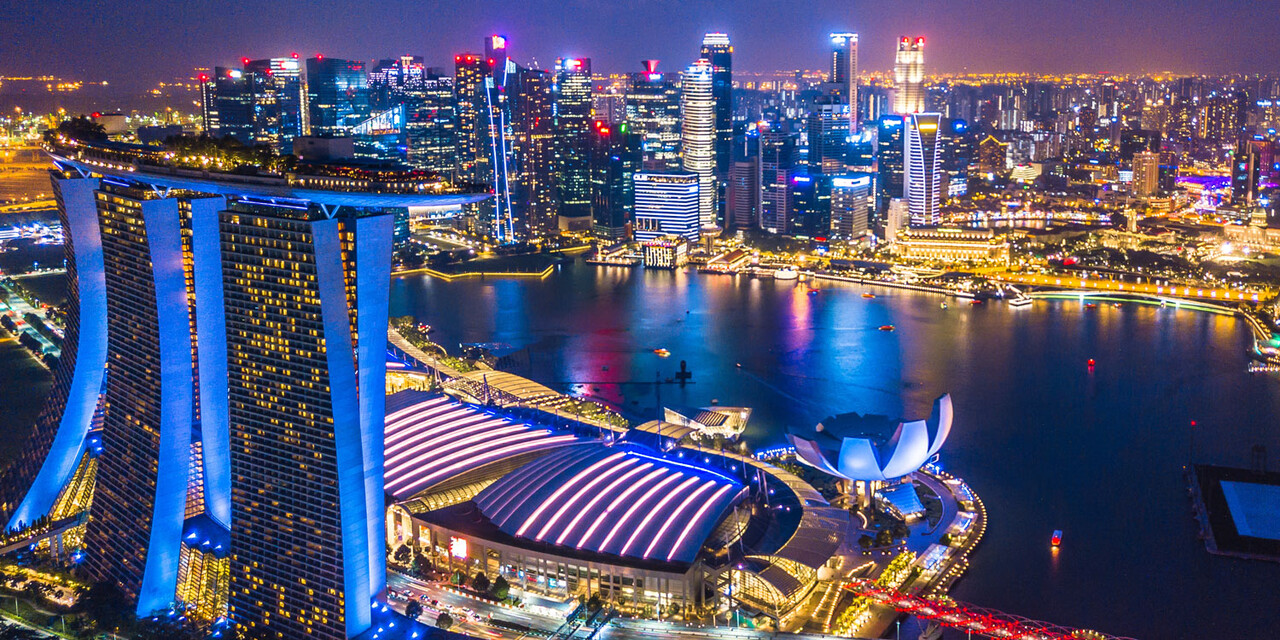
The relevance of export control compliance in Singapore
Export control insights for companies in Singapore's electronics sector and beyond. Including strategic goods control list updates and measures against Russia.

Export control insights for companies in Singapore's electronics sector and beyond. Including strategic goods control list updates and measures against Russia.
The Strategic Goods (Control) Act (SGCA) and its subsidiary legislation form the basis for Singapore's regulatory controls on strategic goods. It governs and regulates the export, transhipment, transit, intangible transfer of technology, and brokering of strategic goods and strategic goods technology.
Under this act, the following subsidiary legislation is of relevance in the context of this article:
There is often uncertainty about what intangible transfers of technology are and when they are controlled. You can learn more about this topic in this article: Technology transfer in export controls: what you need to know.
The AEB software Export Controls automates the process of checking your export control classified goods for latest national and international bans and restrictions – securely and efficiently.
Latest changes to Singapore's Strategic Goods (Control) Order (SGCO) have come into effect on October 1, 2022 under the Strategic Goods (Control) (Amendment) Order 2022. This order includes changes to Singapore's Strategic Goods Control List and amendments to the Strategic Goods (Control) Regulations.
Here are the key changes at a glance:
The implementation of the Strategic Goods (Control) Amendment Order 2022 in October 2022 was a prompt for businesses to verify if the items they export, transfer, or broker fall within the scope of the updated Strategic Goods (Control) Order 2021. If they do, companies are required to get a strategic goods permit. Under Regulation 3 of the SGCR, anyone (directly or on behalf of someone) who transfers strategic goods or issues the through bill of lading or through air waybill, should submit permit applications at least 5 working days prior to shipment date (from Singapore) for single-use permit and at least 2 months in advance for bulk permits with a complete set of supporting documents.
To identify if your products are controlled under the Strategic Goods (Control) Act (SGCA), you should compare your detailed products’ descriptions and specifications against the descriptions in the Strategic Goods Control List. If they meet listed descriptions, they are controlled as strategic goods under the SGCA. You can find a useful determination database on the Singapore government website to help you in this process.
In addition, companies need to remember that observing all requirements under Singapore's Strategic Goods (Control) Act (SGCA) and its subsidiary legislation does not exempt them from also complying with other controls and prohibitions made under other domestic legislations. These include but are not limited to prohibitions made under the Regulation of Imports and Exports Regulations that gives effect to the United Nations Security Council Resolutions.
It is important to note that you also require a strategic goods permit if goods are not listed under the Fourth and Fifth Schedules of the SGCR but you have knowledge, suspicion, or have been informed that they are intended or likely to be used, wholly or in part, for or in connection with the production or development of weapons of mass destruction.
Are your goods destined for military end-uses? Or are they to be used for human rights violations? AEB's Export Controls software checks critical end-use and automatically stops your trade transactions when prohibited actions are identified.
In response to Russia's invasion of Ukraine, Singapore imposed unilateral sanctions against Russia in March 2022 – including export control measures for military and technological goods to Russia as well as financial measures against Russian banks, entities, and activities. This was an unprecedented move and the first time since the 70s that Singapore launched such sanctions.
The new export control measures took effect on March 16, 2022, by means of the Regulation of Imports and Exports (Amendment) Regulations 2022 by the Ministry of Trade and Industry. You can find the full regulation amendment under the Singapore Regulation of Imports and Exports Act 1995 on the Singapore government website.
These measures essentially prohibit any goods that fall within the specified class or description in the Eighth Schedule of the regulation to be exported from, transhipped in, or transferred through Singapore if the destination is, or is intended to be Russia, whether or not the goods originated in Singapore. This Eighth Schedule has been inserted into the regulation as part of this amendment, prohibiting exports, transhipments, and transits to Russia for:
You can find the complete Strategic Goods Controls List on the Singapore government website.
The electronics industry in Singapore is a key driver of the country’s economic growth, accounting for 8% of its GDP and 20% of total manufacturing jobs (source: Ministry of Education Singapore). It is a diverse sector that boasts some of the world’s largest manufacturing facilities. Its ecosystem extends beyond traditional product manufacturing and also features outsourced semiconductors assembly, test companies, materials and equipment production, and services.
Additional value for the electronics industry in Singapore is derived from the country's rank as Asia's top logistics hub and the world’s busiest transhipment hub that is connected to 600 ports in over 120 countries. As such, it is a vital link in global supply chains for a wide range of products from storage and memory products to microelectromechanical systems. Ambitious growth strategies for the sector include plans for further transformation, diversification, innovation, and continued educational framework development.
These developments promise great business potential for companies in the electronics sector in Singapore. But with regards to export controls, trading electronic products also comes with challenges. As explained above, the export control and sanctions landscape is highly dynamic and trade restrictions change frequently.
The wide range of products and services in the sector also include, for example, many dual-use items which fall under the SGCA as listed in category 3 of the Strategic Goods Controls List. Dual-use items are goods, software, and technology that may be used for civil and military purposes. Examples include certain transistors, modules, or navigation equipment – to name just a few.
Latest developments are a timely reminder to stay up to date with accurate export control classification of all materials in your product master and implement automated measures to check your items against latest export control restrictions during all your trade transactions from offer to delivery. Violations of export control regulations can result in serious consequences for businesses – including but not limited to penalties and reputational damage.
Contact us if you would like to discuss how software can help your business to efficiently manage export controls.

Export Controls from AEB automatically checks all your relevant transactions for license requirements and embargo restrictions worldwide. Ad hoc, fully automated, or company-specific. In the cloud or integrated in your ERP.